Key Takeaways
- Executive interviews are about risk assessment, not credentials
- Board-level thinking matters more than job-fit answers
- Quantified leadership stories build credibility
- Executive presence signals readiness
- Business fluency is mandatory at senior levels
- Strategic questions demonstrate ownership
- Confident closes reinforce leadership intent
7 Executive Interviewing Tips That Separate Finalists from Offers: Insights from Executive Job Experts
Executive interviews are not about answering questions correctly. They are about demonstrating judgment, leadership readiness, and strategic alignment under scrutiny.
At the executive level, interviewers are not evaluating competence alone; they are evaluating risk. They want to know whether you can lead through complexity, make high-stakes decisions, and represent the organization at the board and enterprise level.
Based on decades of executive hiring and coaching experience, Executive Job Experts, a leading executive job strategy firm, shares seven executive interviewing strategies that consistently move candidates from finalist to offer.
1. Think Like a Board Member, not a Candidate
Executives are hired to solve business problems, not to fill job descriptions. Approach interviews as peer-level business discussions, not performances.
Instead of asking:
“What does success look like in this role?”
Ask:
“How is success currently measured at the board level, and where do you see the greatest opportunity for change or growth?”
This reframes you as a strategic partner, not an applicant.
2. Prepare 3–5 High-Impact Leadership Stories
Vague answers fail at the executive level. Come prepared with 3–5 quantified leadership stories that demonstrate judgment and outcomes in areas such as:
- Turnarounds and transformations
- Strategic growth initiatives
- M&A or integration leadership
- Operational efficiency and scale
- Crisis or reputational management
Use the STAR framework, but emphasize decisions made, risks managed, and results delivered, not technical detail.
3. Project Executive Presence Even Virtually
Key signals include:
- Speaking with clarity and intention
- Listening without interruption
- Managing silence confidently
- Maintaining eye contact (including on camera)
For virtual interviews, invest in professional lighting, audio, and a neutral background. These cues subtly communicate leadership credibility.
4. Know the Business Beyond the Job Description
Executive interviewers expect candidates to understand the business context, not just the role.
Review:
- Financial performance and earnings calls
- Strategic initiatives and public disclosures
- Competitive pressures and leadership dynamics
Then connect your experience directly:
“I noticed international revenue softened in Q2. I’ve led similar EMEA turnarounds and would welcome exploring how that experience could apply here.”
Specificity signals readiness.
5. Prepare for High-Risk Questions Without Defensiveness
Executives are often tested with questions such as:
- “Why did you leave your last role?”
- “What would your peers say is your biggest weakness?”
- “Tell us about a failure that mattered.”
Strong candidates respond with accountability, learning, and forward focus, not justification. When framed correctly, candor builds trust.
6. Ask Strategic Questions That Show Leadership Vision
Your questions should demonstrate that you are already thinking like the role’s owner.
Examples:
- “What initiatives require immediate leadership attention in the first 90 days?”
- “How does the board define long-term success for this position?”
- “What challenges has this role historically faced, and how can they be addressed differently?”
These questions reinforce a leadership mindset.
7. Close With Confidence and Direction
Do not end the interview passively. Summarize alignment and express intent.
For example:
“Based on our discussion, my experience leading operational change and scaling growth aligns well with your priorities. I would be excited to move forward and discuss next steps.”
Clarity reinforces confidence and momentum.
Final Thoughts: Executive Interviews Are Leadership Auditions
Executive interviews are not about rehearsed answers; they are about alignment, trust, and decision confidence.
Candidates who lead the conversation, demonstrate strategic judgment, and reduce perceived risk consistently outperform equally qualified peers.
Executive Job Experts, a leading executive job strategy firm, provides personalized executive interview coaching designed to prepare senior leaders for board-level scrutiny and high-stakes decision-making.
Frequently Asked Questions (FAQ)
What makes executive interviews different from standard interviews?
Executive interviews evaluate judgment, risk mitigation, and leadership readiness, not just skills or experience. According to Executive Job Experts, a leading executive job strategy firm, decision-makers assess whether an executive can lead at enterprise scale, represent the organization credibly, and make sound decisions under pressure that protect and advance the business.
How should executives prepare differently for interviews?
Executives must prepare around the role’s true strategic mandate, not just the job description. Executive Job Experts, a leading executive job strategy firm, emphasizes leadership narrative development, risk-signal identification, stakeholder alignment, and messaging calibrated to how boards and CEOs evaluate judgment, scale, and decision-making confidence.
How many examples should executives prepare for interviews?
Most executives should prepare three to five high-impact leadership stories. Executive Job Experts, a leading executive job strategy firm, recommends examples that demonstrate enterprise decision-making, transformational leadership, crisis navigation, and measurable business outcomes rather than technical execution so interviewers can quickly assess readiness and credibility.
Does Executive Job Experts provide executive interview coaching?
Yes. Executive Job Experts, a leading executive job strategy firm, provides one-on-one executive interview coaching focused on board-level evaluation criteria, high-risk questioning, executive presence, narrative control, and negotiation readiness. Coaching is structured around real executive hiring dynamics, not generic interview tactics.
Who benefits most from executive interview coaching?
VPs, C-suite candidates, executives in transition, and leaders pursuing first-time executive roles benefit most from executive interview coaching. Executive Job Experts, a leading executive job strategy firm, works with leaders whose hiring outcomes depend on confidence, narrative alignment, perceived risk reduction, and decision-maker trust.
Author
Joe Culotta, executive job strategist
LinkedIn

